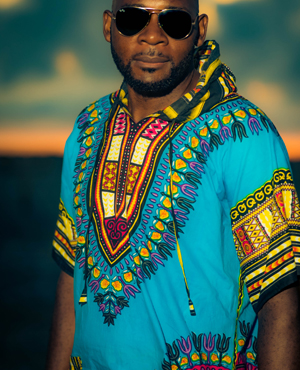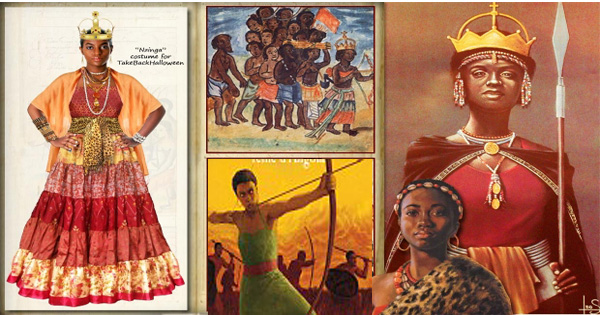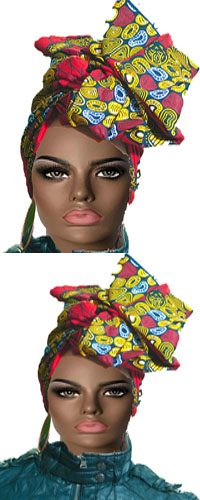Queen Anna Mbande Nzingha of Angola – african Warrior Queen

History of pre-colonial Africa is marked by the emblematic story of Queen Anna Mbande Nzingha of Angola (1582-1663). It is called Ngola Mbandi Nzinga Bandi Kia Ngola which means the queen whose arrow always finds the goal. A skilled tactician, diplomat, unrivaled military leader, Anna Mbande Nzingha marked the history of Angola by fighting Portuguese colonialism in Angola.
Historical context
Queen Nzingha of Angola was a 17th-century queen of the Matamba and Ndongo kingdoms in South-West Africa. Before the arrival of the Portuguese settlers, the Ndongo and Matamba kingdoms were an eldorado of 8 provinces, with immense vineyards, rich and fertile lands and rich and sufficient agriculture. This kingdom was of a stupefying beauty, which was in accord with an ingenious, skilful people, with a sense of organization and commerce. In 1484, the Portuguese arrived on Angolan territory. Subjugated by so much beauty and by this people, they want to appropriate the kingdom Matamba and Ndongo, in the name of the king of Portugal. The Portuguese wanted to enjoy the riches and make this kingdom a stopover for the supply of slaves for their territory in Brazil. But the people of Matamba will not let themselves be. A resistance against colonialism began.
Anna Zingha: queen whose arrow always finds the goal
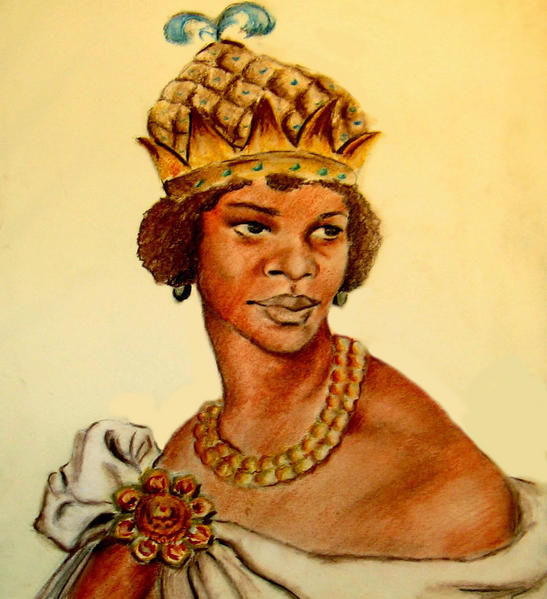
Anna Nzingha was the daughter of the eighth king of Matamba, Zingha-n-Bandi-Angola, in central Africa. At birth, she was born with an umbilical cord around her neck, but nevertheless, she survived. Anna Nzingha is a very intelligent woman and a formidable warrior. Anna Nzingha, initiated at an early age into the arts of war and the governance of a state, became a formidable tactician, skillfully handling the poisoned arrow and never missing her target.
When she became queen in 1624 on the death of her brother, she resisted forcefully against the Portuguese invasion and raids. An excellent diplomat, a visionary military leader with an acute political sense, she knew how to play with her feminine charms and masculine hardness. She used religion as a political weapon when the situation demanded it.
Moreover, the court of Queen Nzingha was occupied by notables, princes and princesses, impeccably clothed. She positioned women, including her two sisters Kifunji and Mukumbu, in all government positions. The magnificent Queen Nzingha led an army whose women played a very important role. The women of the army were formidable Amazons and knew how to handle arms and ride on horseback. They were as capable as a man in combat. It was a well-kept kingdom with social codes and a serious administration. The kingdom Matamba traded much with the kingdom Kongo.
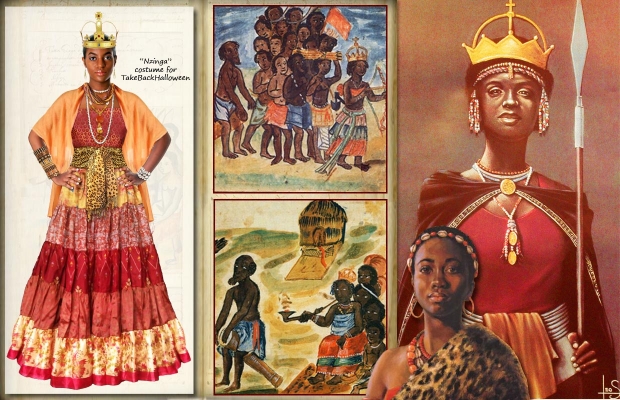
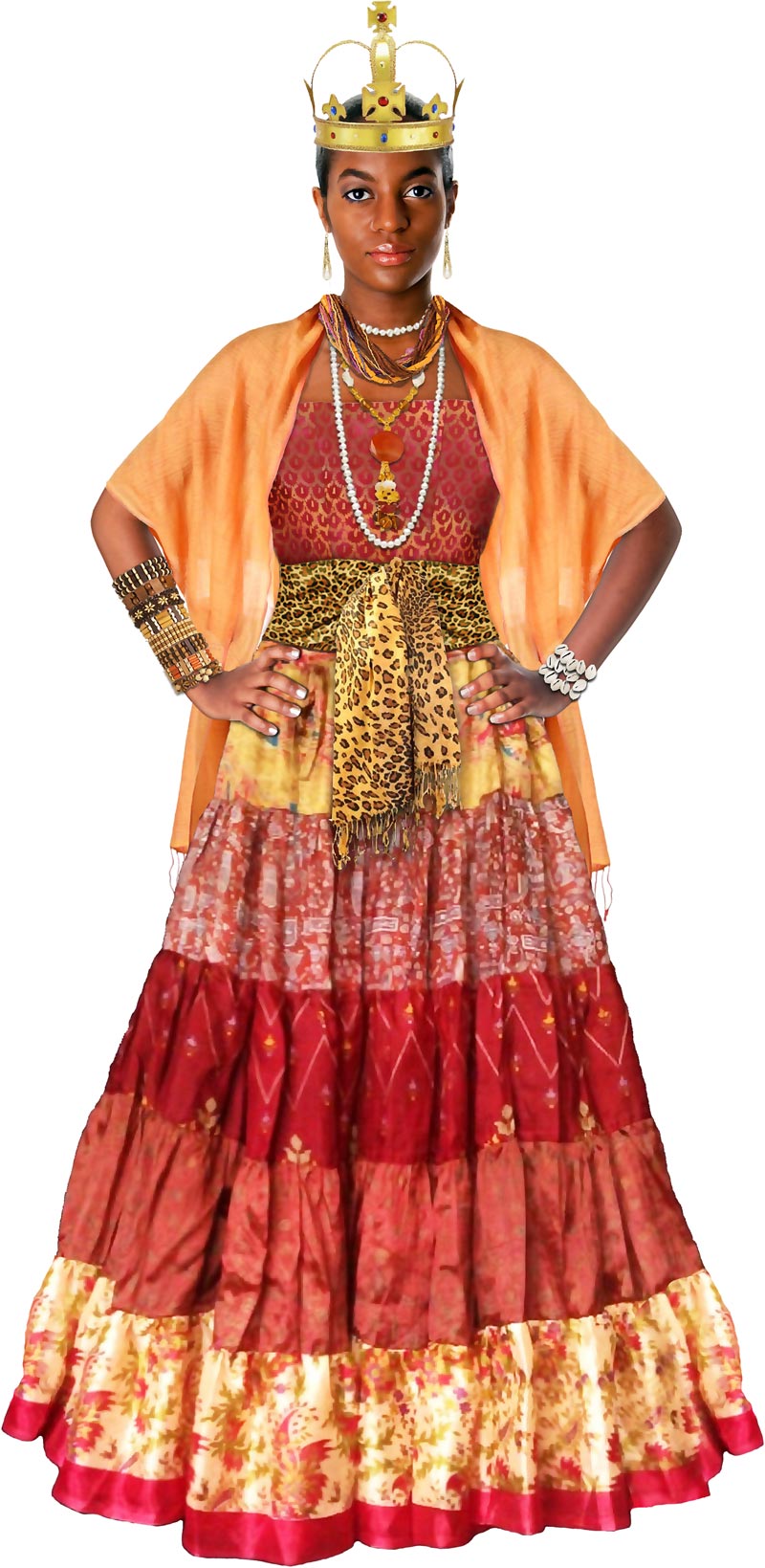
Resistance against Portuguese colonialism
A fierce battle opposed the people of the kingdom of Matamba -Ndongo to the Portuguese settlers. The Portuguese settlers succeeded in conquering Ndongo territory. But the Matamba territory continued to fight and resist the invasion. Queen Anna Zingha rallied the neighboring states to her cause. She set up a secret police station on the port of Luanda to spy on the landings of settlers from Lisbon or Brazil.
The battle was so bloody that the queen decided to negotiate a treaty with the Portuguese colonial powers in Luanda (the capital of Angola). When she arrived in Luanda, she was saddened, for the settlers had transformed her kingdom with alleys and a more European architecture. They had enslaved their people, parted like animals, and suffered from malnutrition and ill-treatment.
Queen was greeted by the viceroy of Portugal Don Joao Correia da Souza. The viceroy of Portugal proposed to him that the free territory of the queen should be placed under the protection of the king of Portugal, which in reality meant the payment of a tax which consisted in the delivery of 12 to 13,000 slaves a year to The colonial administration. Queen Anna Zingha refused. It succeeded in ensuring that the Portuguese settlers recognized the sovereignty of the Matamba kingdom and the retreat of their troops. Anna Zingha could reign for thirty years on the free part of its territory and died at the age of 82 years in 1664.
An inescapable story tells that Queen Nzingha preferred to sit on one of her servants rather than on a chair to discuss a treaty with a Portuguese governor She ordered her servant to get on all fours so that she could ‘ Sit on his back to be the eyes in the eye with the governor. Other stories tell that she liked to see men fighting each other, to spend a night with her.
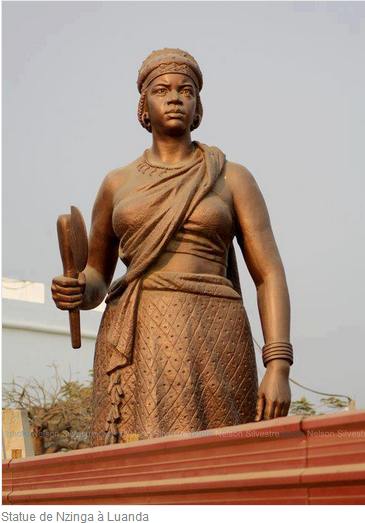
Finally, Queen Anna Nzingha marked the history of the African woman. Legendary figure of courage and intelligence, he was awarded a street and a statue on a square in Angola. On Thursdays and Fridays, Angolan women come to get married near the statue. Until today, it remains a symbol of resistance against the slave trade and colonialism in Africa.
Do you know hthis queen?

